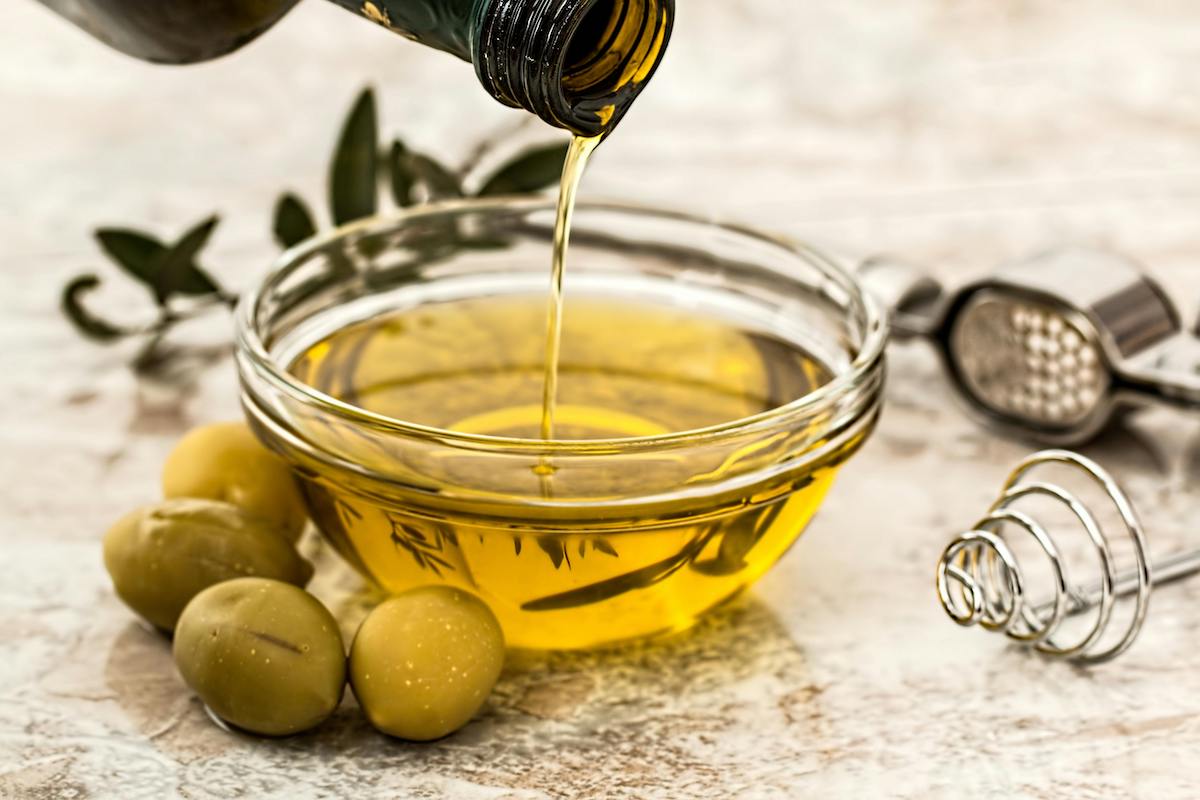
Typically, we try to keep food off our faces. However, applying food to the skin isn’t exactly new. Skin care professionals have put different foods, like berries, in face masks, and at-home recipes also call for adding ingredients like avocado, often reserved for breakfast.
What about olive oil? Not only is olive oil a food, but the word “oil” may be a turn-off, particularly for people with acne-prone skin. Still, applying
“Recently, DIY, or do it yourself, skincare has gained popularity, with many patients preferring home remedies,” said Viktoryia Kazlouskaya, MD, Ph.D., the founder and a dermatologist at Dermatology Circle PLLC, in New York. “This is also encouraged by social media and even a few celebrities. Patients often assume that using olive oil is safe, and indeed, it is for many individuals.
That doesn’t mean you should grab a bottle of olive oil from your pantry and lather up. Experts explained the benefits of

Can you apply olive oil to the skin?
Dermatologists say that most people can apply olive oil directly to the skin without issue.
“Applying olive oil to the skin is generally considered safe,” said Tarek Shaath, MD, FAAD, a dermatologist and Mohs surgeon with Care Dermatology
However, as with many recommendations in skincare (and medicine), the risks and benefits of applying olive oil topically vary by the person.
“How beneficial it may be depends on your skin type and skincare routine,” said Morgana Colombo, MD, FAAD, a dermatologist and advisor for HYAESTIC.
Olive oil benefits for skin
The main one is the potential for added moisture.
“Olive oil is great for hydrating skin, it’s a great moisturizer, and it contains lots of antioxidants,” Colombo said. “It can improve your overall skin health and the appearance of your skin…It also protects from redness and irritation…and helps with sun damage.”
The antioxidant properties can also be protective.
“Because it has antioxidant properties, it can also protect your skin from environmental damage and inflammation,” Dr. Colombo said.
Risks of using olive oil on the skin
Anecdotally, olive oil boasts benefits for the skin. However, Kazlouskaya said there is little research to back up claims.
“A small study indicates that the application of olive oil may lead to a worsening of eczema,” said Kazlouskaya. “
Kazlouskaya said this yeast is linked to various conditions, including seborrheic dermatitis and dandruff.
“As a board-certified dermatologist, I discourage the use of olive oil, particularly for individuals with sensitive skin or a propensity for eczema,” Kazlouskaya said. “A trial on a small skin area for a few days is the best to prevent potential complications.”
Though Colombo is more optimistic about the topical use of olive oil in skincare, she agrees the ingredient isn’t for everyone.
“If you have oily skin, you want to avoid using products with excess oil in them,” Colombo said. “Products with excess oils in them may also clog your pores if you have oily skin and, therefore, are not beneficial for your skin type.”
Finally, rarely — but sometimes — people may have allergies to olive oil.
“Individuals with known olive oil allergies should avoid its topical application,” said Shaath.

Tips for applying olive oil to the skin
If you apply olive oil to the skin, experts share you should keep a few particulars in mind, including the type you’re using.
- Choose wisely. Shaath generally recommends extra virgin olive oil because this type has less processing and higher antioxidant content. However, Kazlouskaya said extra virgin olive oil can still trigger irritation, so start with a small patch test.
-
Apply. You can apply more broadly once the olive oil clears a patch test. Shaath suggests applying a small amount to clean, damp skin.
-
Try products. Perhaps the idea of applying just olive oil directly to the face doesn’t appeal to you. However, you want to see if
olive oil benefits your skin. Opt for products that listolive oil as an ingredient. “There are many skincare products, such as moisturizers and cleansers, which containolive oil ,” Shaath said.
On the subject of products, Kazlouskaya noted that more proven ingredients for skin health include:
-
Ceramides
-
Glycerin
-
Petrolatum
-
Triglycerides
“I usually encourage patients to choose products with a proven track record in moisturizing effectiveness,” she said.

Summary
If you’re experiencing dry skin, you may be looking for an Rx. Is the olive oil lurking in your pantry the answer? Maybe. Olive oil contains antioxidants and may be hydrating. However, experts say that evidence is limited, and some people may notice clogged pores or irritation. Your best bet is to speak with a dermatologist before putting a food like
Finally, consuming olive oil as a food may yield more significant benefits to your skin (and the rest of your body).
“Olive oil is rich in monounsaturated fats and antioxidants, and its consumption can contribute to overall well-being, including skin health,” Kazlouskaya said. “These fats play a role in forming the skin’s natural barrier, helping to retain moisture and protect against external factors. So, it is much safer to eat it rather than apply it on the skin.”
Editors' Recommendations
- How often should you change your razor blades?
- The 15 best body lotions for dry skin to lock in moisture
- Is Vaseline the Swiss army knife your skincare routine needs? What derms have to say
- Keep your lips moist and smooth with the 11 best lip balms for men
- Will omega 3s actually help hair, skin, and nails?




